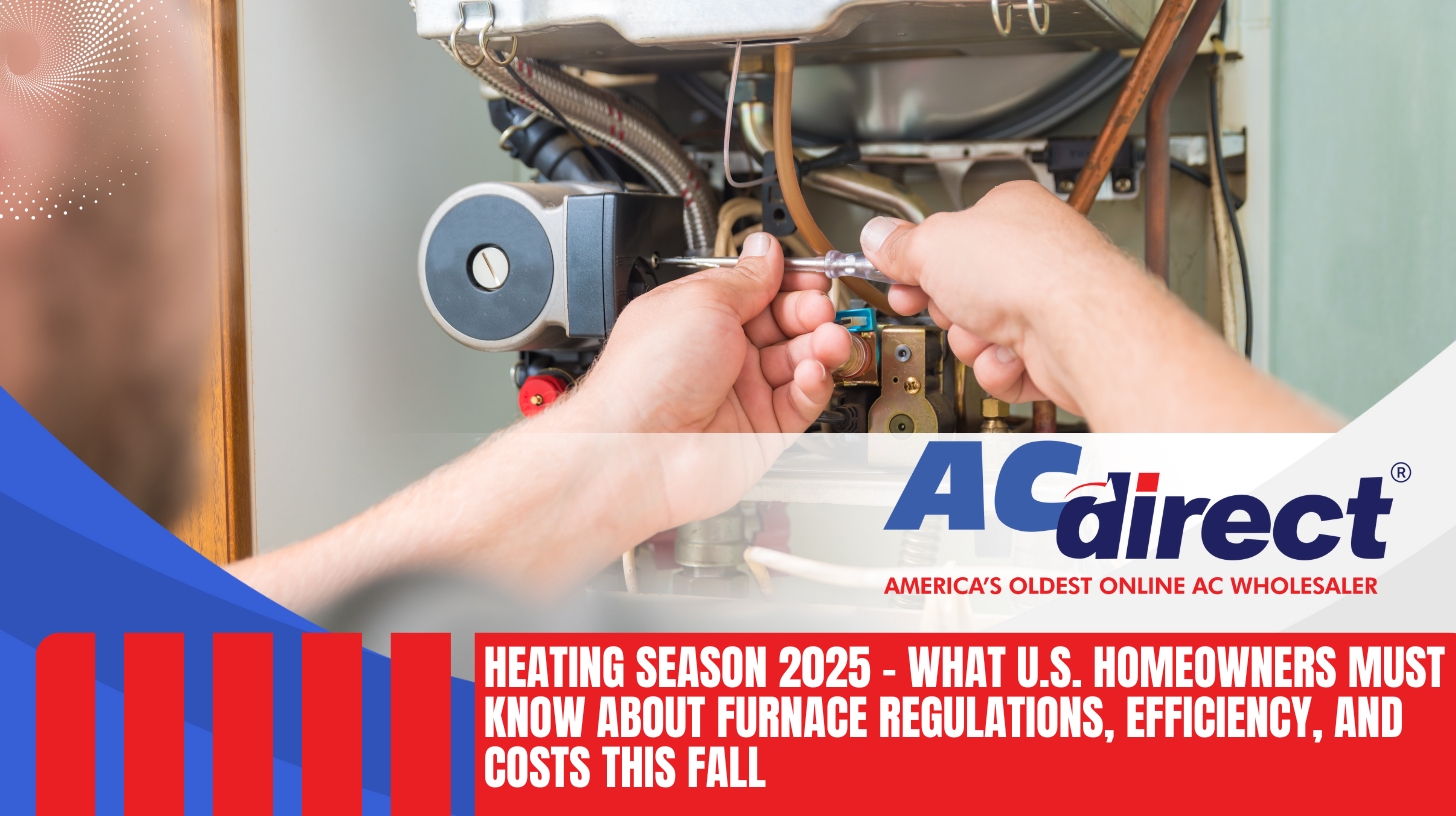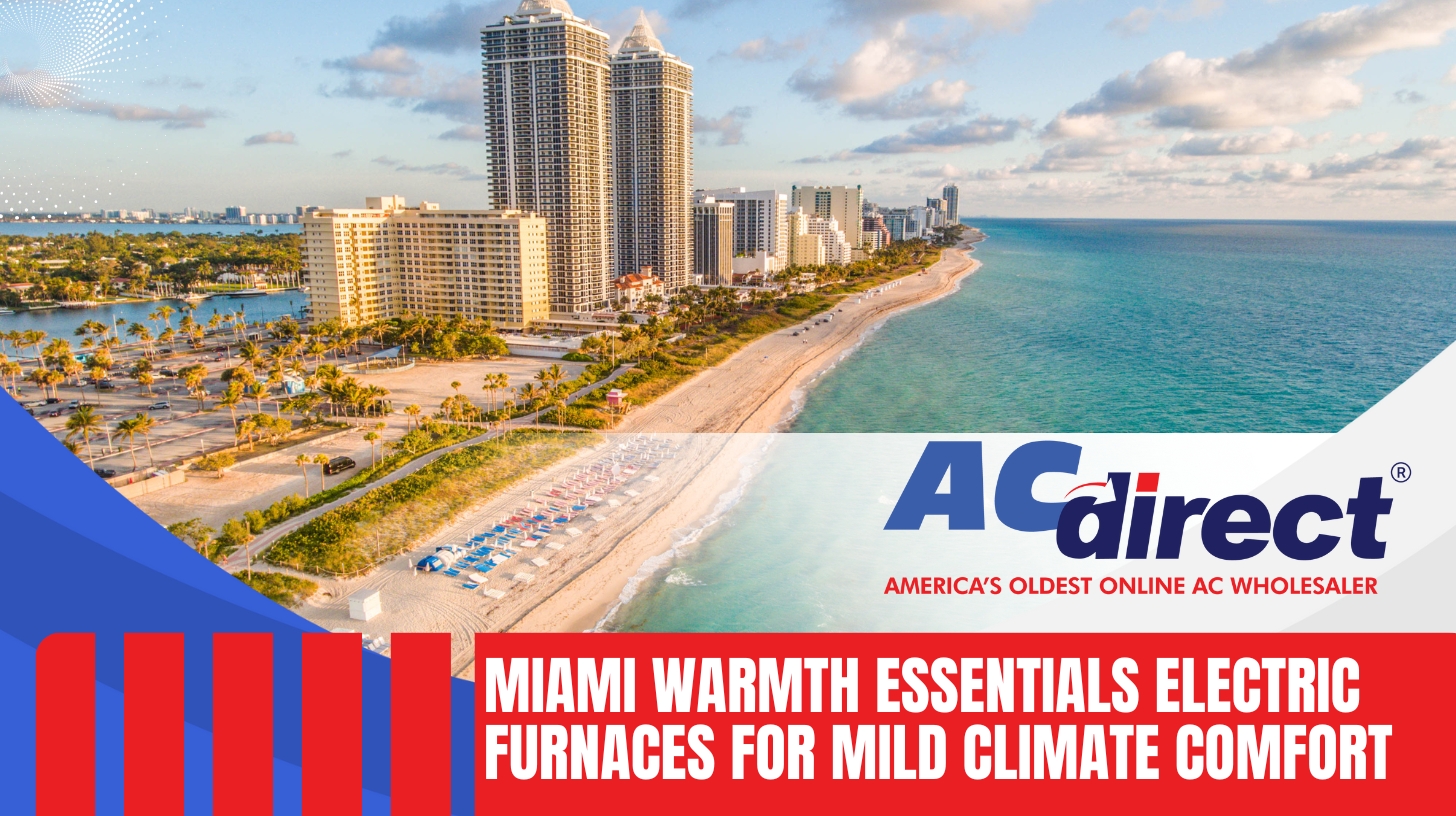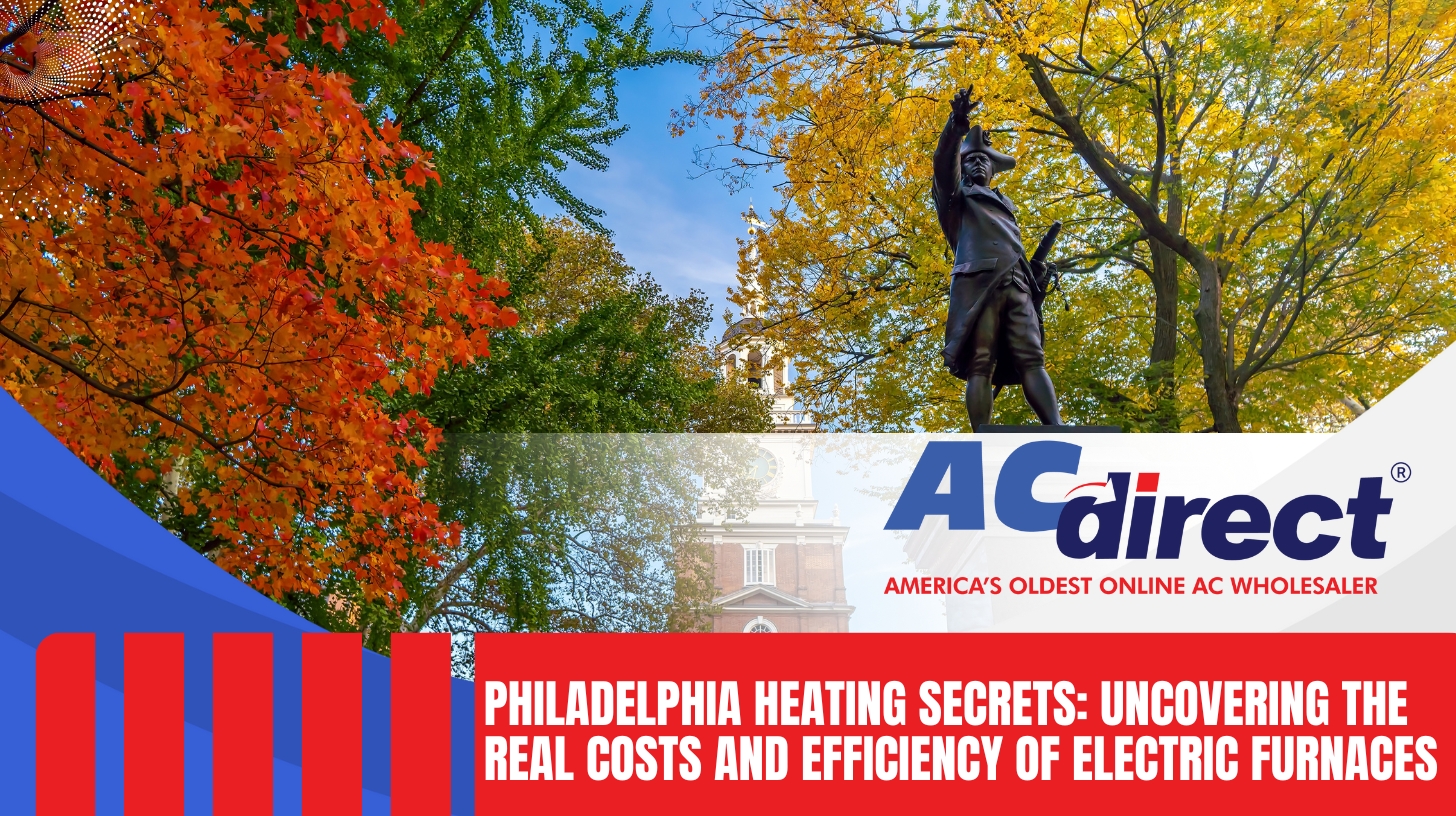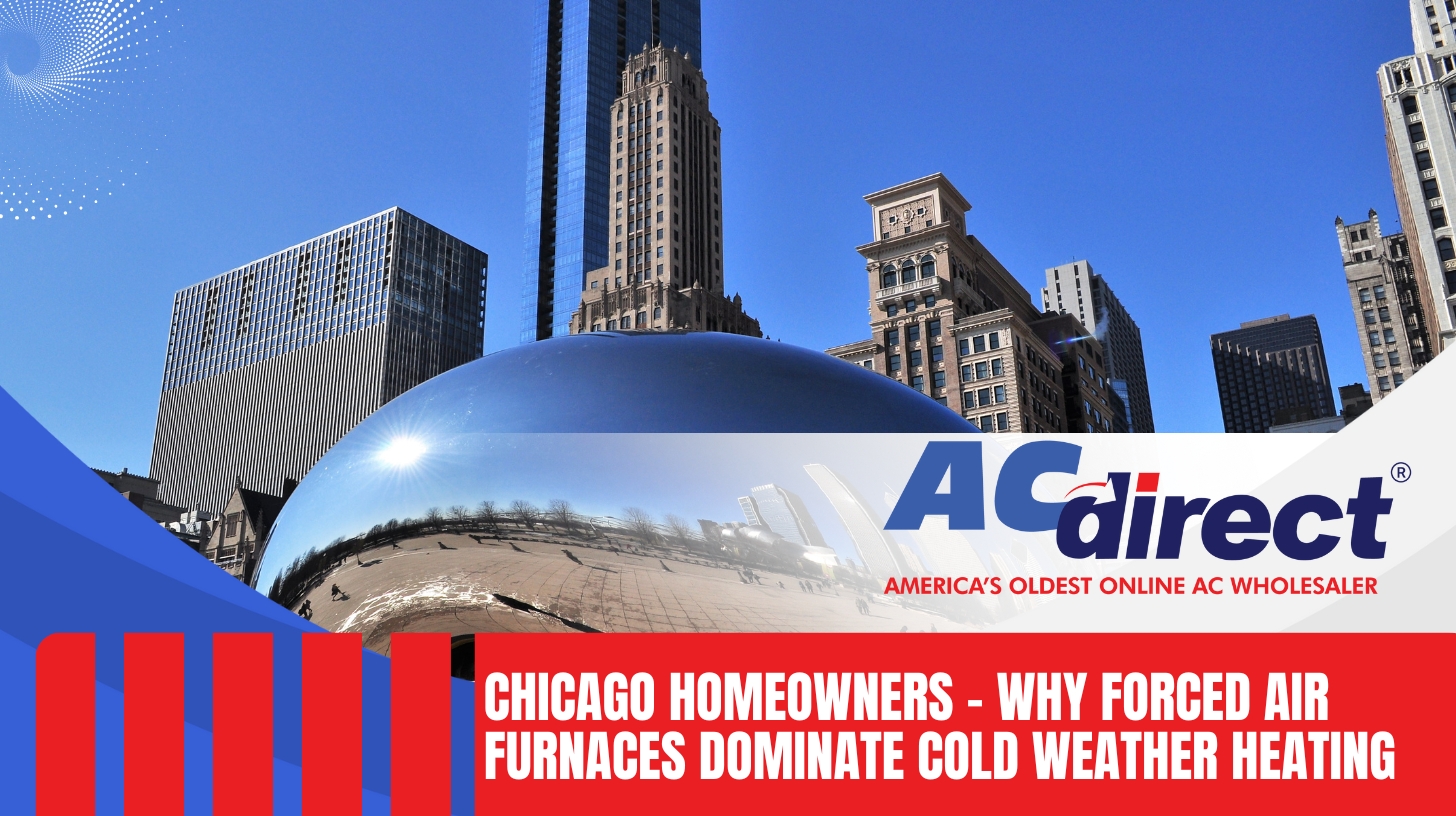The Surprising Statistics Behind Air Conditioning Upgrades During Renovations
-
 By
Michael Haines
By
Michael Haines
- Jan 13, 2025

By Mike Haines 1/13 Home renovations offer homeowners the opportunity to enhance their living spaces, improve functionality, and increase property value. Among the various upgrades considered during renovations, air conditioning systems play a pivotal role in ensuring comfort and energy efficiency. At AC Direct, we understand that integrating or upgrading HVAC systems during home renovations requires careful planning and informed decision-making. In this, we look into the statistical insights surrounding air conditioning and home renovations. By examining trends in HVAC upgrades, the impact on property values, and the factors influencing homeowners' choices, we aim to provide valuable information that can guide your renovation projects. Whether you're undertaking a minor update or a major overhaul, understanding the relationship between air conditioning and home renovations can help you achieve optimal results and maximize your investment.
Air Conditioning and Home Renovations: Statistical Insights
Home renovations present a unique opportunity for homeowners to upgrade various aspects of their living spaces, enhancing both aesthetics and functionality. Among these upgrades, air conditioning systems hold significant importance due to their impact on comfort, energy efficiency, and overall property value. Understanding the statistical trends and insights related to HVAC system integrations during home renovations can empower homeowners and HVAC professionals to make informed decisions that align with both immediate needs and long-term goals.
Key Highlights
-
HVAC Upgrades in Home Renovations Are Increasing
- 40% of homeowners undertaking major renovations include HVAC system upgrades (National Association of Home Builders).
- Smart HVAC technologies, including automated scheduling and remote control, are driving this trend.
-
Air Conditioning Upgrades Boost Property Value
- Homes with modern, energy-efficient HVAC systems can see a 10% increase in market value (National Association of Realtors).
- Energy-efficient AC units make homes more attractive to buyers and sell faster in competitive markets.
-
Energy Efficiency and Cost Savings
- High-efficiency SEER-rated air conditioners reduce energy consumption by up to 30% (U.S. Department of Energy).
- Upgrading AC systems helps lower utility bills and supports environmentally sustainable living.
-
Factors Driving HVAC Upgrades in Renovations
- Aging HVAC Systems: Older units are less efficient and more prone to breakdowns.
- Smart HVAC Adoption: Features like smart thermostats and variable-speed compressors increase control and efficiency.
- Regulatory Compliance: Homeowners must upgrade systems to meet new energy efficiency standards.
- Government Incentives: Rebates and tax credits reduce the cost of energy-efficient HVAC upgrades.
-
Regional Trends in HVAC Renovation Upgrades
- Hotter Regions (Southern U.S.): Greater demand for high-efficiency cooling solutions.
- Milder Climates: Homeowners focus more on system efficiency rather than increasing cooling capacity.
-
Real-World Examples of Successful HVAC Upgrades
- Austin, TX: Family upgraded to a high-SEER HVAC unit, cutting annual energy consumption by 25%.
- San Francisco, CA: Home renovation included a ductless mini-split system integrated with a home automation platform, improving energy efficiency and resale appeal.
-
Best Practices for HVAC Upgrades During Renovations
- Assess Current Infrastructure: Choose the right system based on home layout and energy needs.
- Prioritize Energy Efficiency: Select high-SEER models for lower operational costs.
- Smart Integration: Incorporate smart thermostats for better remote control and automation.
- Hire Certified HVAC Professionals: Ensures proper installation and compliance with safety standards.
Trends in HVAC Upgrades During Renovations
Over the past decade, there has been a noticeable increase in the incorporation of air conditioning system upgrades in home renovation projects. According to data from the National Association of Home Builders (NAHB), approximately 40% of homeowners undertaking major renovations include HVAC system enhancements as part of their projects. This trend is driven by several factors, including the desire for improved energy efficiency, the need for modernized systems, and the influence of rising energy costs.
In recent years, the adoption of smart HVAC technologies has further accelerated this trend. Homeowners are increasingly seeking systems that offer advanced features such as remote control, automated scheduling, and integration with smart home ecosystems. These technological advancements not only provide greater convenience but also contribute to significant energy savings, making them an attractive option for renovation projects.
Impact on Property Values
One of the most compelling reasons for homeowners to upgrade their air conditioning systems during renovations is the positive impact on property values. Studies have shown that modern, energy-efficient HVAC systems can increase a home's market value by up to 10%. The National Association of Realtors (NAR) reports that homes with updated HVAC systems tend to sell faster and at higher prices compared to those with older, less efficient systems.
The enhanced energy efficiency of modern air conditioners is a key selling point for potential buyers. With rising awareness of environmental sustainability and the long-term cost benefits of energy-efficient systems, upgraded HVAC units make a home more attractive in the competitive real estate market. Additionally, the inclusion of smart HVAC technologies can further differentiate a property, appealing to tech-savvy buyers who value integrated home automation features.
Energy Efficiency and Cost Savings
Energy efficiency is a major consideration for homeowners when planning renovations, and upgrading air conditioning systems plays a crucial role in achieving greater energy savings. High-efficiency air conditioners, often rated with higher Seasonal Energy Efficiency Ratio (SEER) values, consume less electricity while providing the same level of cooling. According to the U.S. Department of Energy, upgrading to a high-SEER air conditioner can reduce energy consumption by up to 30%, leading to substantial savings on utility bills over the lifespan of the system.
Furthermore, integrating energy-efficient HVAC systems into home renovations contributes to overall sustainability goals. Homeowners are increasingly motivated by the desire to reduce their carbon footprint and adopt greener living practices. By selecting environmentally friendly air conditioning systems, homeowners not only benefit financially but also contribute to broader environmental conservation efforts.
Factors Influencing HVAC Upgrades in Renovations
Several factors influence homeowners' decisions to upgrade their air conditioning systems during renovations. These factors include:
Age of Existing Systems: Older HVAC systems are often less efficient and more prone to breakdowns. Homeowners may choose to upgrade to newer models to improve reliability and performance, especially if their existing systems are nearing the end of their operational lifespan.
Technological Advancements: The availability of advanced HVAC technologies, such as smart thermostats and variable-speed compressors, encourages homeowners to incorporate these features into their renovations. These technologies enhance control, efficiency, and user experience, making modern HVAC systems a desirable upgrade.
Regulatory Standards: Increasingly stringent building codes and energy efficiency standards drive the adoption of upgraded HVAC systems. Homeowners renovating their homes must comply with these regulations, which often necessitate the installation of energy-efficient air conditioners.
Financial Incentives: Government rebates, tax credits, and financing options make upgrading HVAC systems more affordable. These financial incentives lower the initial cost barrier, encouraging more homeowners to invest in high-efficiency air conditioning systems during renovations.
Regional Variations in HVAC Upgrades
The decision to upgrade air conditioning systems during renovations is also influenced by regional climate variations. In hotter and more humid regions, such as the Southern United States, the demand for efficient cooling solutions is higher, leading to a greater prevalence of HVAC system upgrades. Homeowners in these areas prioritize systems that can handle extreme temperatures and high humidity levels, ensuring year-round comfort and energy efficiency.
In contrast, regions with milder climates may see a different approach to HVAC upgrades. Homeowners in these areas might focus on enhancing system efficiency rather than increasing cooling capacity, opting for ductless mini-split systems or hybrid HVAC systems that offer both heating and cooling capabilities. These regional differences underscore the importance of selecting air conditioning systems that are tailored to the specific climate and cooling needs of the home.
Successful HVAC Integrations in Renovations
Examining real-world examples of successful HVAC integrations during home renovations provides valuable insights into best practices and the tangible benefits of upgrading air conditioning systems.
Energy-Efficient Retrofit in Austin, Texas
A family in Austin, Texas, embarked on a major home renovation project aimed at enhancing energy efficiency and comfort. As part of the renovation, they upgraded their aging central air conditioning system to a high-SEER model equipped with a smart thermostat. This upgrade not only reduced their annual energy consumption by 25% but also provided greater control over indoor temperatures through remote monitoring and scheduling. The investment in a modern HVAC system resulted in significant long-term savings on utility bills and increased the home's market value by 8%.
Smart HVAC Integration in San Francisco, California
In San Francisco, a newly renovated home featured the latest smart HVAC technologies, including a ductless mini-split system integrated with a home automation platform. The smart system allowed the homeowners to control their air conditioning remotely via smartphone and voice commands. Additionally, the system adapted to their daily routines, optimizing cooling cycles to maximize efficiency and comfort. This integration not only enhanced the living experience but also attracted potential buyers when the homeowners decided to sell, showcasing the value of smart HVAC systems in modern renovations.
Enhancing Home Renovations with Upgraded Air Conditioning Systems
When planning a home renovation, upgrading your air conditioning system can significantly improve comfort, energy efficiency, and property value. A modern HVAC system ensures a seamless blend of functionality and smart home integration while keeping utility costs in check. Whether you're replacing an outdated unit or installing a new system in a remodeled space, choosing the right air conditioner is crucial. Below are some of the best options available at AC Direct, each offering a balance of performance, efficiency, and long-term savings.
-
ACiQ 12,000 BTU PTAC Heat Pump Air Conditioner with 3.5kW Electric Heater
Ideal for home renovations that include individual room updates, this 12,000 BTU PTAC unit provides both cooling and heating. Its built-in electric heater makes it a year-round solution, while its energy-efficient operation ensures cost savings. -
ACiQ 15,000 BTU PTAC Heat Pump Air Conditioner with 3.5kW Electric Heater
A great choice for larger rooms in renovated homes, this 15,000 BTU unit delivers powerful cooling and heating. It features advanced filtration to enhance indoor air quality—an essential factor in any home upgrade. -
ACiQ 2 Ton 13.4 SEER2 Cooling Only Package Unit
Perfect for whole-home renovations, this 2-ton unit is designed to efficiently cool spaces between 1,000 to 1,200 square feet. Its high SEER2 rating ensures lower energy bills and optimal performance. -
ACiQ 2.5 Ton 13.4 SEER2 Cooling Only Package Unit
This system is ideal for mid-sized homes undergoing renovations, offering a balance of energy efficiency and cooling power. Its design makes it easy to integrate into both existing and newly constructed HVAC systems. -
ACiQ 3 Ton 13.4 SEER2 Cooling Only Package Unit
If you're expanding your living space, this 3-ton air conditioner is a strong contender. It cools up to 1,800 square feet efficiently and is a great fit for modernized open-concept home designs. -
ACiQ 3.5 Ton 13.4 SEER2 Cooling Only Package Unit
Renovating a larger home? This 3.5-ton unit delivers consistent and reliable cooling for spaces up to 2,100 square feet. Its high efficiency makes it a cost-effective solution for long-term home improvements. -
ACiQ 4 Ton 13.4 SEER2 Cooling Only Package Unit
Designed for substantial home renovations, this 4-ton air conditioning system efficiently cools larger living areas. It’s an excellent upgrade for homes looking to optimize comfort and reduce energy consumption. -
ACiQ 7,000 BTU PTAC Heat Pump Air Conditioner with 2.5kW Electric Heater
A great solution for home additions or guest rooms, this compact PTAC unit provides efficient cooling and heating with minimal installation requirements—perfect for renovations with limited space. -
ACiQ 9,000 BTU PTAC Heat Pump Air Conditioner with 3.5kW Electric Heater
This unit offers excellent versatility for renovated home offices or smaller rooms. It combines energy efficiency with user-friendly controls for a comfortable indoor climate. -
Goodman 2.5 Ton 14.5 SEER2 R32 Air Conditioner Split System with Electric Heat
A premium choice for full-home HVAC renovations, this Goodman split system offers superior efficiency with an advanced R32 refrigerant for eco-friendly operation. It provides both cooling and heating, making it a valuable upgrade.
Invest in Comfort and Efficiency for Your Renovation
Upgrading your air conditioning system during a home renovation is a smart investment that enhances comfort, boosts property value, and reduces long-term energy costs. Whether you're modernizing a single room or overhauling your entire home, AC Direct offers a wide range of efficient and high-performing HVAC solutions. Explore more options and find the perfect unit for your renovation at AC Direct.
Best Practices for HVAC Upgrades in Renovations
To ensure successful integration of air conditioning systems during home renovations, homeowners and HVAC professionals should adhere to the following best practices:
Assess the current HVAC infrastructure and determine the most suitable upgrades based on the home's layout, climate, and energy efficiency goals. Comprehensive planning ensures that the new system integrates seamlessly with existing components and meets the specific cooling needs of the home.
Professional Installation
Engage certified HVAC technicians to install and configure the new air conditioning system. Professional installation ensures optimal performance, compliance with safety standards, and longevity of the system.
Prioritize Energy Efficiency
Select air conditioning systems with high SEER ratings and advanced energy-efficient features. Prioritizing energy efficiency not only reduces utility costs but also aligns with sustainability objectives.
Incorporate Smart Technologies
Integrate smart thermostats and home automation features to enhance control and optimize system performance. Smart technologies offer greater convenience and can lead to additional energy savings through intelligent operation.
Regular Maintenance
Implement a maintenance schedule to keep the air conditioning system operating efficiently. Regular maintenance tasks, such as cleaning filters and inspecting components, prevent issues and extend the lifespan of the HVAC system.
Final Thoughts
Air conditioning systems are a vital component of home renovations, offering significant benefits in terms of comfort, energy efficiency, and property value. Statistical insights reveal a clear trend towards the integration of modern, energy-efficient HVAC systems in both new and older homes undergoing renovations. By understanding the factors driving HVAC upgrades, regional variations, and the tangible benefits of enhanced air conditioning systems, homeowners can make informed decisions that maximize their renovation investments.
At AC Direct, we are dedicated to providing top-quality air conditioning solutions tailored to your renovation needs. Whether you’re upgrading an existing system or installing a new unit in a newly constructed home, our range of high-efficiency air conditioners, furnaces, and mini-split systems ensures that you achieve optimal comfort and energy savings. Explore our extensive product offerings at AC Direct and consult with our expert team to find the perfect HVAC system that complements your home renovation plans, enhances your living environment, and increases your property’s value.
Supporting Data
-
National Association of Home Builders – HVAC Trends in Home Renovations
https://www.nahb.org/ -
National Association of Realtors – Impact of HVAC Upgrades on Home Value
https://www.nar.realtor/ -
U.S. Department of Energy – Energy Savings from High-SEER AC Systems
https://www.energy.gov/energysaver/air-conditioning -
DSIRE – Government Rebates & Incentives for Energy-Efficient HVAC
https://www.dsireusa.org/ -
EPA – Environmental Benefits of Energy-Efficient HVAC Upgrades
https://www.epa.gov/energy/
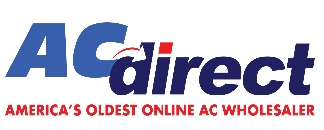
 and now, NASCAR Racing Sponsor
and now, NASCAR Racing Sponsor






